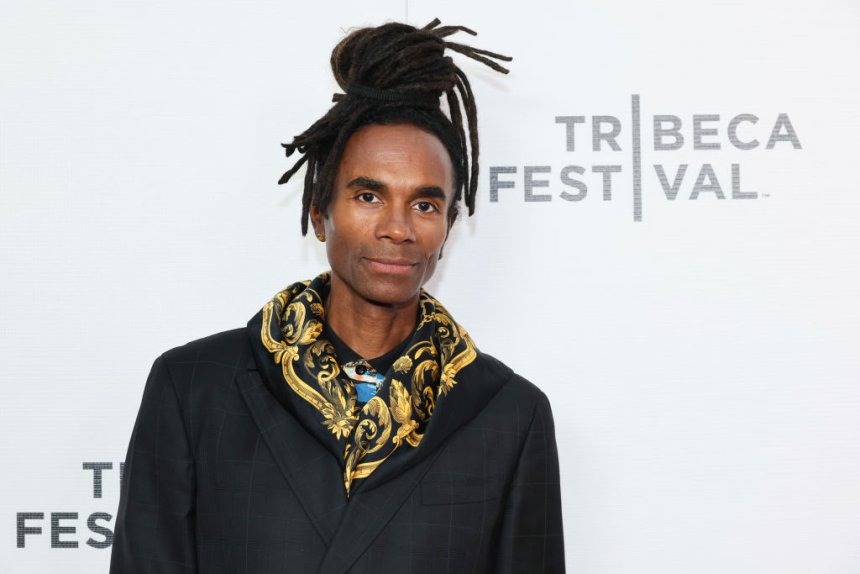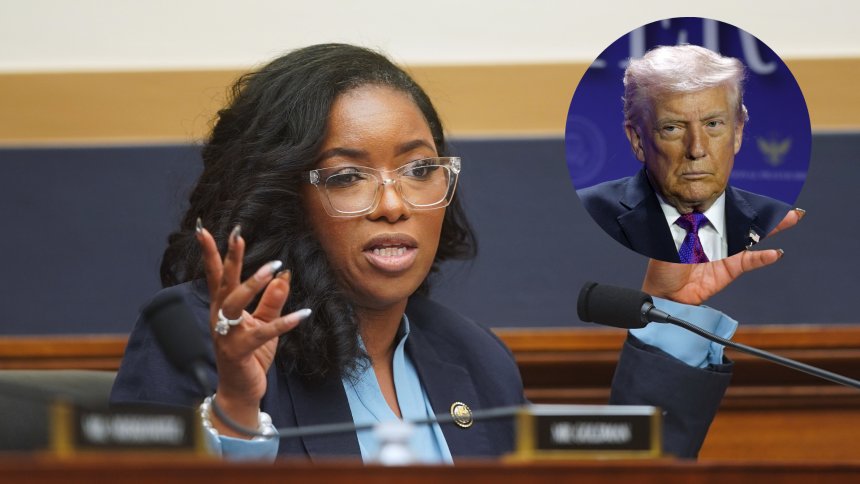Viola Davis’s rise: Awards, action and unapologetic truth
“I can change the way Black women are seen,” Viola Davis declared in a 2022 interview with The Guardian. Since
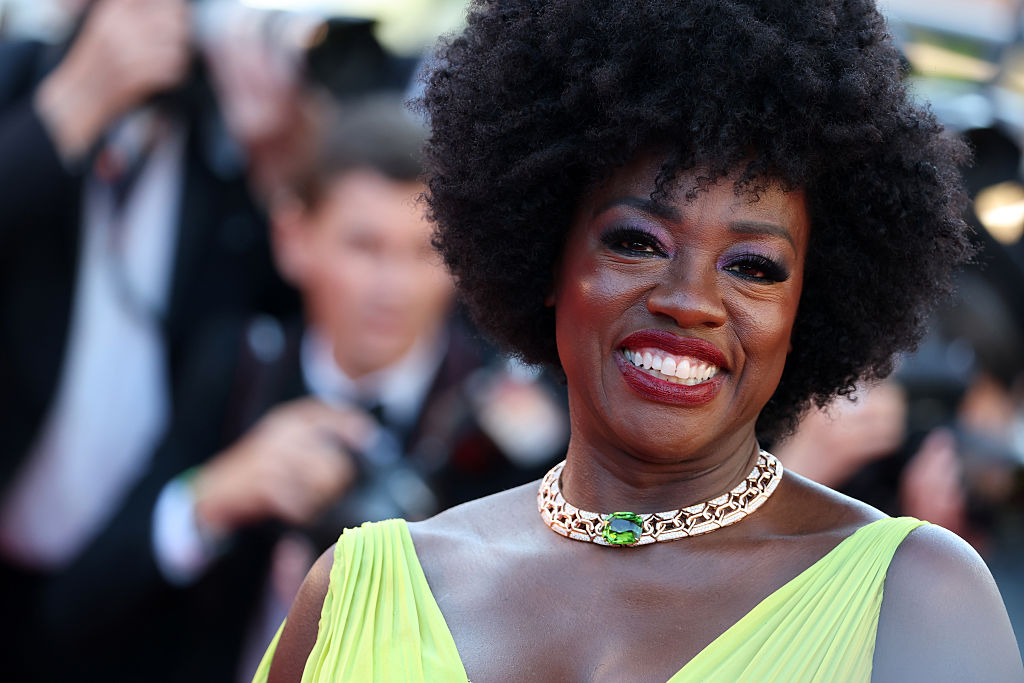
“I can change the way Black women are seen,” Viola Davis declared in a 2022 interview with The Guardian. Since the actress, known for her powerful and emotionally driven performances on both the big and small screens, came onto the scene, she has made it her business not only to deliver convincing, relatable portrayals but also to break open the box that Black actresses are often confined to.
Throughout her several decades-long career, Davis has managed to do that and more.
A star in the making: early career and TV beginnings

Viola Davis was born on August 11, 1965, in St. Matthews, South Carolina. Not long after Davis was born, her family moved to Central Falls, Rhode Island. There, Davis began acting, first by performing skits at the park — one skit, she clarifies, that was written and performed by her sisters and her for a contest — then by participating in plays at her alma mater, Central Falls High School.
A self-proclaimed “theater geek,” Davis was all in on performing arts. She often frequented the arts programs at community centers in neighboring cities and immersed herself in her high school’s program, including representing it at the Rhode Island State Drama Festival.
Post-high school acting experience
Given Davis spent so much of her time throughout her childhood and teenage years immersed in the performing arts world, it’s unsurprising that she continued down this path after graduating high school.
Davis attended the Young People’s School for the Performing Arts and Rhode Island College. She graduated with a theater degree in 1988. Her next stop was the Juilliard School in New York City. While many romanticize their time at the prestigious institution, Davis keeps it real, telling The AV Club that her experience there was mixed.
“It’s like any great medicine that works,” Davis shared. “It tastes absolutely lousy going down, but ultimately helps and heals you. And that’s what Juilliard was. Juilliard is classical training. They don’t really want to focus on what you do well — that’s what got you into the school. They’re training you to do other stuff well, which may not come easily to you. And when you focus on that a lot, it’s just like therapy — when you focus on all your inadequacies, you start feeling inadequate. You start noticing your inadequacies, and that’s what Juilliard does. And it doesn’t help that there are no windows at the school. (laughs)”
From school to stage: Making her Broadway debut
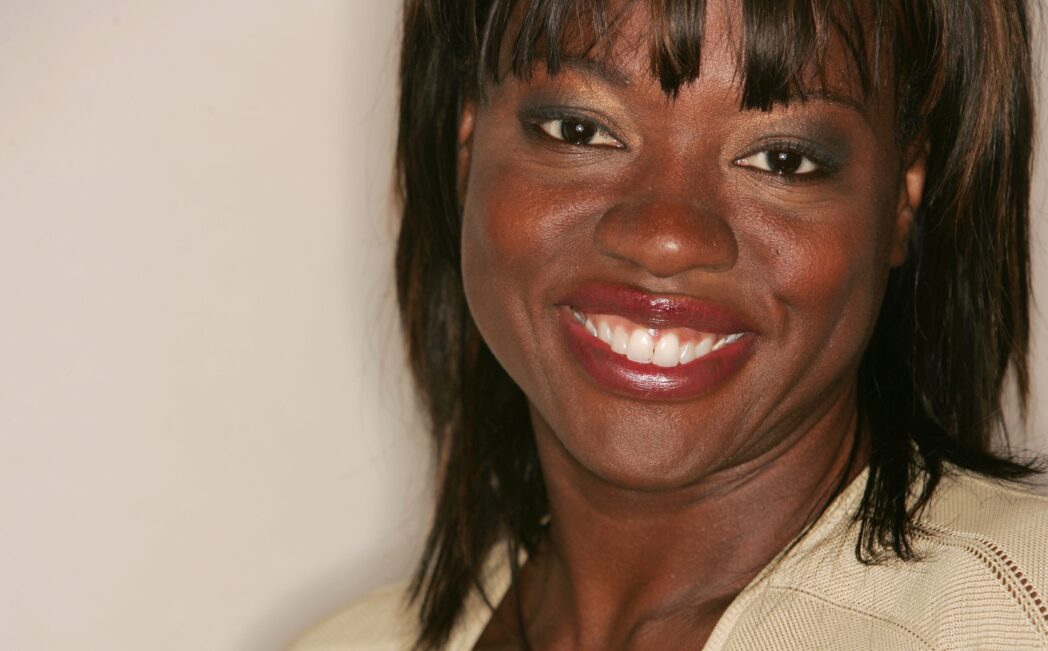
Davis graduated from Juilliard in 1994, and the next year, she made her Broadway debut in “Seven Guitars.” The play, written by August Wilson and set in Pittsburgh’s Hill District in 1948, centers on the life and struggles of the Black community. Davis starred as Vera, the romantic partner of the recently deceased character Floyd Barton.
Davis’s “Seven Guitars” performance was impressive enough to earn her a nomination for Best Featured Actress in a Play at the 1996 Tony Awards. However, she wouldn’t take home the win; Audra McDonald’s performance in “Master Class” won the award in the category. The same role also got Davis an Outstanding Featured Actress in a Play nomination at the 1996 Drama Desk Awards.
What series did Viola Davis star in?
Like many of her peers, Davis took her talents from the stage to the screen. She made her film debut in 1996 with an appearance in “The Substance of Fire,” and then went on to have small roles in several films. Some of Davis’s film credits are “Out of Sight,” “Traffic” and “Solaris,” all of which were directed by Steven Soderbergh.
Davis spent the 1990s using her acting chops not only on film sets and theater stages but on television sets. The Rhode Island native managed to land several one-time guest spots on television series like “NYPD Blue” and “Judging Amy” before earning a more prominent recurring role on the CBS medical drama “City of Angels.”
For 24 episodes, Davis played a nurse, Lynnette Peeler. The show, which goes down in history as TV’s first medical drama with a predominantly Black cast, had Davis acting alongside names like Blair Underwood, Vivica A. Fox and Julius Tennon, the latter of whom she would marry years later.
‘How to Get Away with Murder:’ The role that made history
Of all of her roles — the ones Viola Davis had in plays, movies and TV shows — the most iconic is Annalise Keating in ABC’s “How to Get Away with Murder.” Screenwriter and producer Shonda Rhimes — if her name sounds familiar, it’s because she’s the mastermind behind the long-running television drama “Grey’s Anatomy,” as well as its spin-off, “Private Practice” and “Scandal,” starring Kerry Washington — served as executive producer of “How to Get Away with Murder.”
Rhimes has built a reputation for creating and producing series centered around sharp-minded, strong women and has, therefore, resculpted the image of a female television lead. Davis’s Keating is no exception.
Where others aim to create uplifting role model types, Rhimes portrays women in authoritative, powerful and sometimes scary lights. To quote a 2014 New York Times article, Rhimes’s characters, specifically Keating, take the stereotypical Angry Black Woman trope and mold it into something “enviable.”
Besides the fact that it brought her into Rhimes’s efforts to redefine the typical female television lead, Davis’s “How to Get Away with Murder” role was significant because it went against the beauty standards many Black actresses are subjected to. When the show premiered, Davis was 49 and dark-skinned, a clear departure from the younger, lighter faces typically cast.
Praise for Annalise Keating
Davis has said portraying Keating is her proudest professional accomplishment because the role required her to be brave. Her bravery led her to work with the writers to make Keating as human as possible — that involved having Keating take off her wig onscreen, exploring the why behind her sexual nature and making the character walk awkwardly in heels.
The awards and acclaim Davis received for her work on HTGAWM probably don’t hurt, either. In 2015, she received an Emmy for Outstanding Lead Actress in a Drama Series. This made her the first Black woman to take home the award.
Breaking through on the big screen
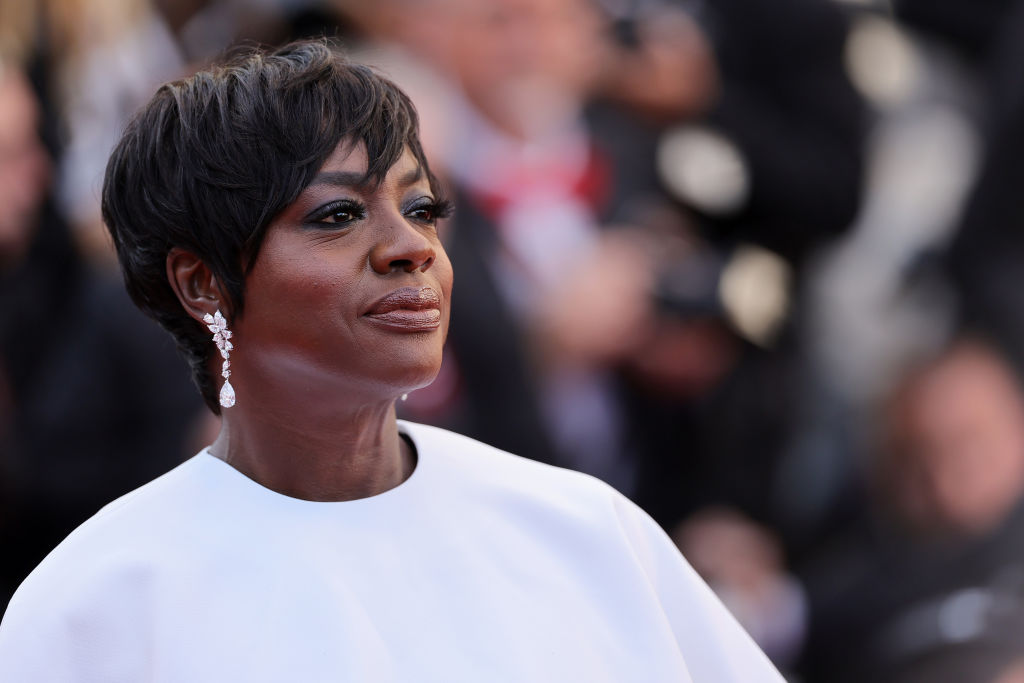
Davis’s performances in award-garnering productions have helped make her one of the most influential people in the entertainment industry and a name that many aspiring actors cite as their hero.
Scene-stealing in ‘Doubt’
Though not her first movie role, Davis’s performance in “Doubt,” a 2008 film adaptation of the stage play starring Philip Seymour Hoffman, Meryl Streep and Amy Adams, is the one that earned her scene-stealer status.
Davis played Mrs. Miller, the mother of a young man who might have been molested by a Catholic priest. She only appeared in a few minutes of the film, but those — the eight-minute scene she shines in puts her head-to-toe with Streep — show off her undeniable acting chops. Her time in the film was brief but impactful, not only taking her career to new heights but earning her Best Supporting Actress nominations at the Academy and Golden Globe Awards in 2009.
Davis told NPR she was drawn to the character’s complexity and added,
“I was attracted to the fact that this is a fully realized human being. That’s what you’re trained to do in acting school, is to play a three-dimensional human being, and it was very attractive to me.”
What movie did Viola Davis win an Oscar for?
“Doubt” set Davis’s career on an upward path, taking her from a relatively unknown performer to star status. A few of her film credits that came after “Doubt” include “Madea Goes to Jail” in 2009, “The Help” in 2011, “Get On Up” in 2014 and “Fences” in 2016.
“Fences” was another breakout moment for Davis. The film is an adaptation of a play written by August Wilson — that’s a full-circle moment for Davis, as her Broadway debut was a Wilson work — that put Davis opposite Denzel Washington. For her portrayal of Rose Maxson in the film, Davis earned her first Academy and Golden Globe Awards, both for Best Supporting Actress.
Her acceptance speech at the Academy Awards was an attention-grabber, both positively and negatively. Davis declared,
“I became an artist, and thank God I did, because we are the only profession that celebrates what it means to live a life.”
Some took offense at the statement, interpreting Davis’s words as a belief that only actors celebrate what it means to live a life. However, others praised the speech, using her thoughts to dub her an actor who truly understands and respects their craft.
The EGOT milestone: Reaching the pinnacle of performance
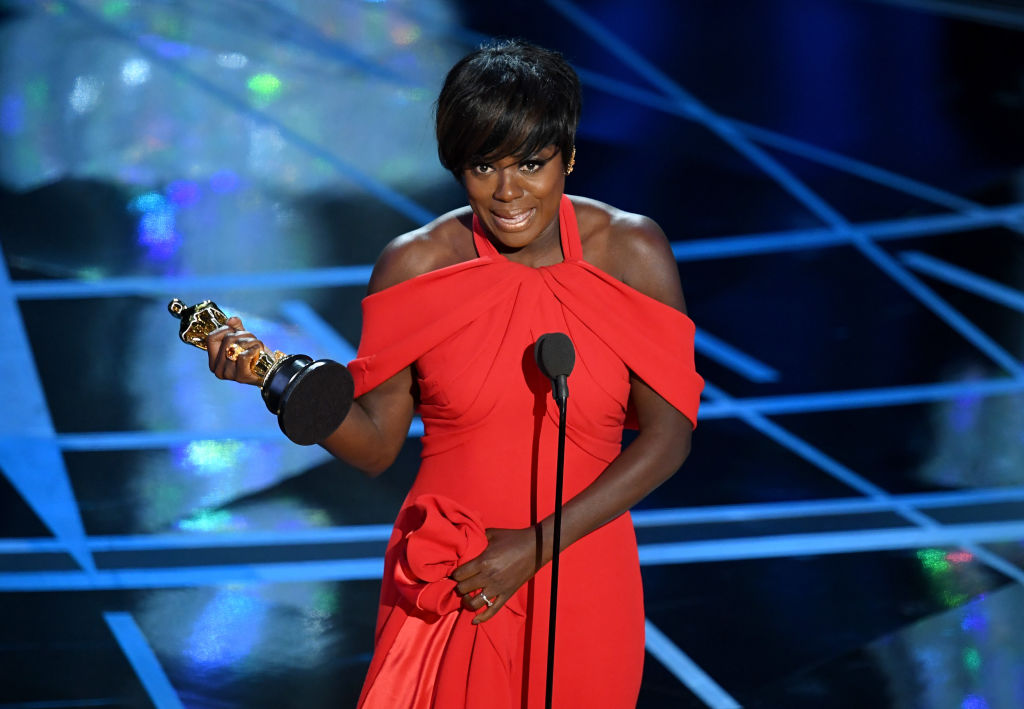
Davis’s career, which spans close to 30 years, has been quite varied. Her acting talents have taken her from stage to TV to film and back again, and her emotional performances have made her the recipient of some of those industries’ most prestigious awards, including an Emmy for “How to Get Away with Murder” (2015), two Tony Awards for “King Hedley” (2001) and “Fences” (2010) and an Oscar for the “Fences” film adaptation in 2017.
Her acting endeavors put her three-fourths of the way to an EGOT, an acronym used to describe a small number of entertainers who have managed to earn Emmy, Grammy, Oscar and Tony Awards throughout their careers. In 2023, Davis achieved EGOT status when she picked up her first Grammy Award at that year’s award ceremony.
Though most Grammys are reserved for singers, songwriters and bands, the award show also honors spoken word and narration of written works. Davis’s Grammy win fell into that category, as she was honored with a Best Spoken Word Album award for her narration of her memoir, “Finding Me.”
Davis became the third Black woman to achieve EGOT status, after Whoopi Goldberg in 2002 and Jennifer Hudson in 2022. She was the 18th person to receive the honor overall.
More award milestones: The Oscars’ most-nominated Black actress
Reaching EGOT status was no doubt a milestone in Viola Davis’s career. However, getting an EGOT won’t be the only award show-related accomplishment the Juilliard graduate will be known for.
Davis is a Guinness World Record holder as the Oscars’ most-nominated Black actress, as of March 15, 2021.
Another notch on Davis’s belt is the Cecil B. DeMille Award, presented to her at the 2025 Golden Globe Awards ceremony. Named after famed director Cecil B. DeMille, the award is presented to Hollywood’s best and brightest, performers with deep dedication to their craft who have made an undeniable impact on the industry.
According to Golden Globes president Helen Hoehne, Davis fits that description to a T, saying,
“Viola Davis is a luminary whose profound talent has continuously shifted the lens through which we see and understand film…Viola’s courage in portraying complex, powerful characters has broken barriers and paved new paths, making her an emblem of excellence and an ideal recipient of this prestigious award.”
More than an actress: Viola Davis as advocate and entrepreneur
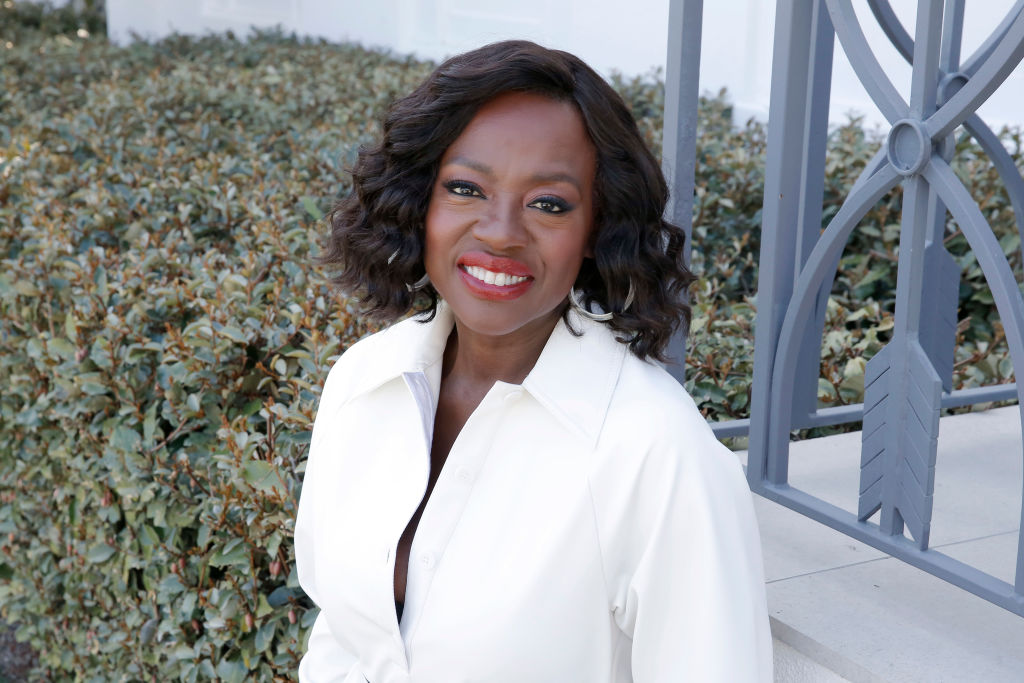
There’s no question that Davis is an impressive performer — her lengthy, diverse résumé proves how talented she is. But she’s more than just an actor. She’s an advocate for diversity and truth in storytelling, and she uses the production company she and her husband, Julius Tennon, created to fight for them.
JuVee Productions: Shaping the narrative
Davis and Tennon saw a need for more fully realized roles for Black actors, including themselves. So, in 2011, the pair founded JuVee Productions, hoping to find projects in which Black performers could not only showcase their talents but also push back against harmful stereotypes about their communities.
Since its establishment, JuVee Productions has produced titles like “The Woman King” and “The First Lady,” both of which starred Davis and were released in 2022. These projects, plus the others on the JuVee Productions roster, do what Davis and Tennon set out to do: expand the stories told by and about Black communities.
Expanding the legacy
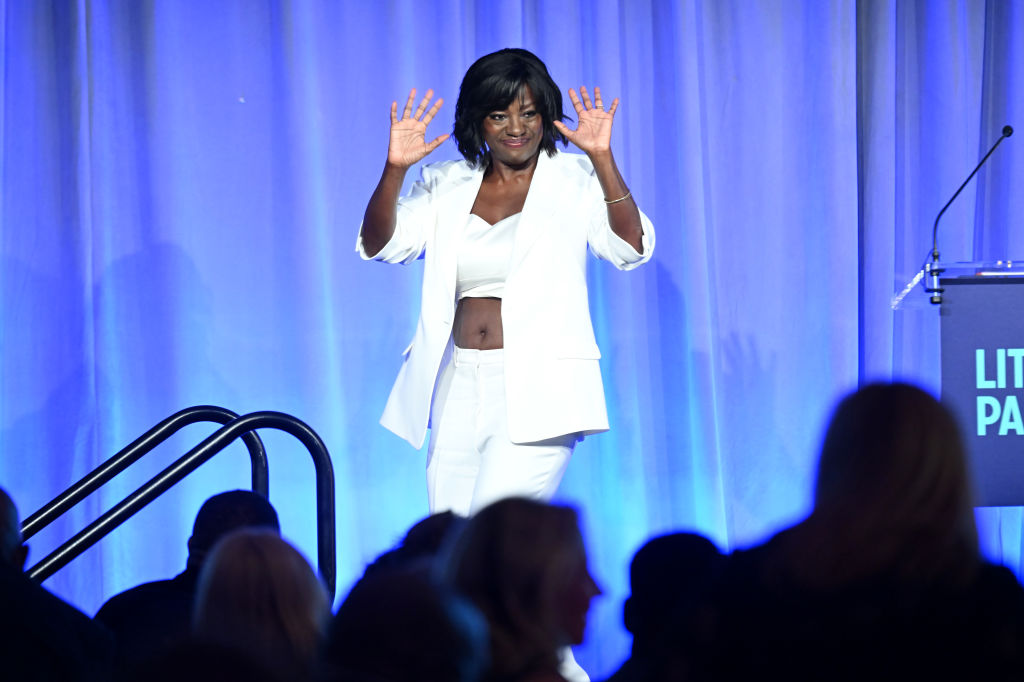
Davis has done plenty throughout her career, and she’s not finished yet. Her list of accomplishments and acting credits is steadily growing.
Author, producer and empowerer
Davis’s childhood was far from a walk in the park. Because of the difficulties she faced as a child and young adult, Davis has committed herself to creating opportunities for kids who might find themselves in situations similar to the ones she faced.
That’s why she and her husband created the Davis Tennon Foundation, an organization that hones in on her hometown and its children, working with local leaders to meet the community’s specific needs. She hopes to create some sort of lifeline for the children, offering them a chance to do everything they dream of.
“I see a lot of 6-year-old Violas there, and they’re dreamers, and they’re waiting to see what and who they can become,” she said at the Mastercard Center for Inclusive Growth’s Global Inclusive Growth Summit. “And with the tide of uncertainty, I know that I can use my golden lasso, per se, to keep them afloat.”
Through her work with the foundation and the production company, not to mention sharing her story in her 2022 memoir, “Finding Me,” Davis empowers and inspires generations.
Still at the forefront: Recent projects and impact
In addition to acting as JuVee Productions CEO and her work with the Davis Tennon Foundation, Davis is, of course, still adding to her long list of performance credits. Most recently, she starred in the 2025 Amazon Prime action thriller “G20,” portraying a U.S. President navigating a hostage crisis during the G20 Summit.
Viola Davis’s new movie, “Children of Blood and Bone,” will premiere in 2027. Audiences don’t have to wait that long to catch her on their screens, though. In August 2025, she’ll return to season two of “Peacemaker,” resuming her role as government official Amanda Waller.
Viola Davis’s cultural legacy
That her career is still soaring upward after years in the business is proof that the South Carolina-born, Rhode Island-raised actress and her voice remain necessary in Hollywood. Her life and career choices inspire actors of all races and backgrounds, shatter the unfair stereotypes that often follow Black performers and further cement the legacy she has already created.
Check out TheGrio’s archives for more Viola Davis news.
Share
What's Your Reaction?
 Like
0
Like
0
 Dislike
0
Dislike
0
 Love
0
Love
0
 Funny
0
Funny
0
 Angry
0
Angry
0
 Sad
0
Sad
0
 Wow
0
Wow
0
